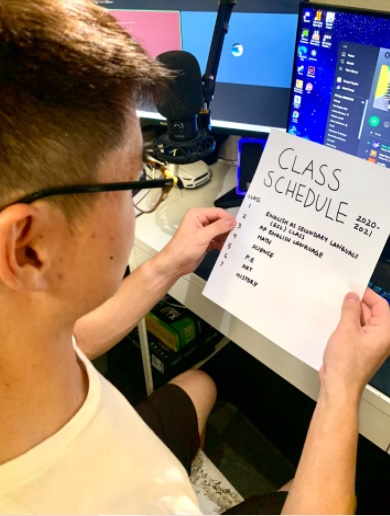“Is English Your First Language?”
As far as I can recall, English was easier to use than the words that came from my Korean parents‘ mouths. I used English more often and was better at it. But I was enrolled in an ESL, English as a Secondary Language, class for all 6 years of elementary school. ESL are classes put together to gather non-English native speakers and to help teach students ways to improve their English literacy skills. I never understood why I was in that class, let alone why my Chinese friend is in ESL class today.
I was in fourth grade when I first realized that ESL class was a waste of my time. They took every student of color in my class and stopped our activities to head us to our secondary English class. Why was it that I had to relearn how to spell my vegetables while my other friends were learning how to write personal narratives?
Fast forward to the present today; my Chinese friend, who speaks fluent English and who passed the AP English Language exam, was still stuck in her ESL class. She attests that she has no difficulty speaking or writing in English, so why was she in ESL? Did her A’s in honors English mean nothing? While interviewing my friend, who wishes to remain anonymous , she complains that her school‘s ESL teacher lost her records, so she had to retake the entire ESL class in her junior year to prove English fluency. She lost out on both the chance to take a class of her choice and to “escape the mundane environment.”
From my eyes, as a student reporter, there are many lacking aspects to the ESL program that is supposed to “help students.” Once you claim that there is another language spoken at home besides English, schools will be quick to place students in ESL classes, regardless of their capabilities to speak fluent English.
Because the U.S has increasingly more immigrants, I believe that it is essential that schools put more attention towards their growing population of ESL students, to ensure that encouraging and genuinely interesting classes are put together for bilinguals who need to catch up to their fellow classmates. However, I cannot argue enough the necessary changes that need to be made to current ESL classes. If these classes genuinely desire to help students, teachers and the ESL curriculum must help foster critical-thinking and problem-solving in an engaging way. Then, innovative, self-actualized, and empowered students can cultivate human-centered connections as well as improve their English.
I hope that for future students and leaders of America, they enjoy a highly engaging class that doesn’t just teach the English language, but also plants the seed of interest to each and every student.
Allison Hwang, Grade 12,
West Ranch High School

